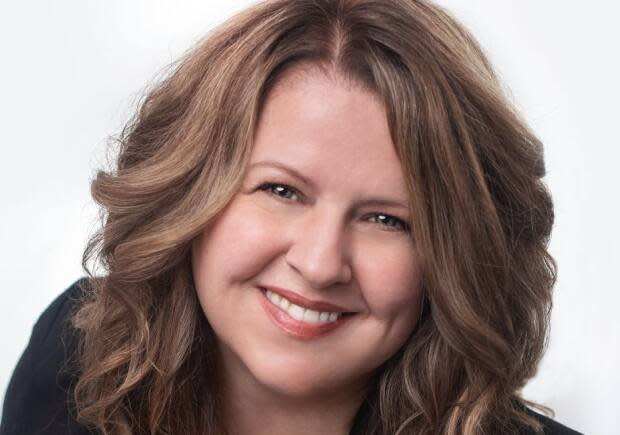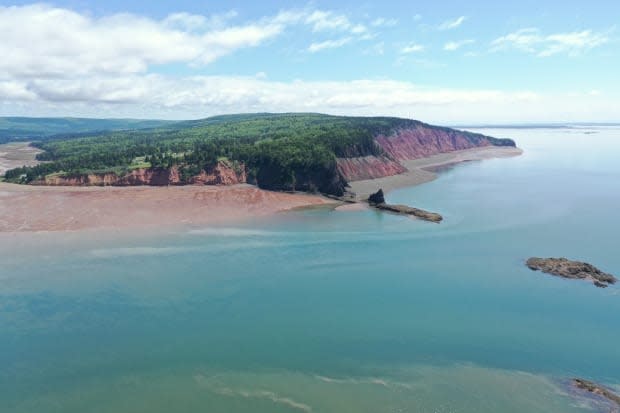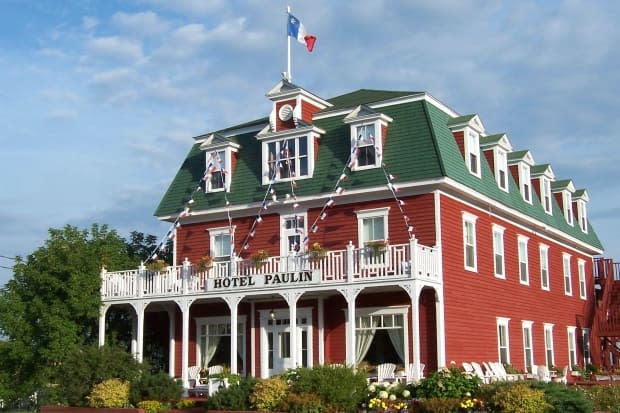N.B. tourism traffic hasn't returned to 2019 levels

While some New Brunswick businesses are seeing higher-than-usual traffic, tourism activity hasn't returned to 2019 levels.
Tourism operators in remote rural areas are being hit the hardest, while the labour shortage and inflation is making it hard for other businesses to operate.
"In terms of the return of tourists, we have not recovered to the 2019 level, but it has been a very strong season so far," said Tammy Scott Wallace, Minister of Tourism, Heritage and Culture.
"And I'm quite thrilled with it."
Wallace said the strongest rebound of visitors are those travelling from Ontario, but the number of international visitors has decreased.
Howard Heans, owner of Hardings Point Campground near Saint John, said his business is seeing a lot fewer travellers from the U.S.

"I'm close to the Calais border… I'm in American books and what not and that traffic is non-existent," said Heans.
He said the campground is mainly seeing weekend visitors.
Heans said more people are renting sites for tenting, instead of for motorhomes, which is likely due to the rising cost of gas.
More millennial tourists
Wallace said visitor demographics have changed.
"We've seen a kind of a new visitor emerge, which is more of the millennial crowd, which is something that we never really identified as a strong tourism group," said Wallace.
She said this new crowd of tourists seems to be more interested in urban cities, nightlife and craft beer.

"We've targeted a lot of our marketing to them really for the first time, so that's a fun demographic to see come to New Brunswick," she said.
Wallace said areas including the Bay of Fundy and the Acadian Peninsula are seeing large numbers of tourists.
Wallace said the department is looking into incentives to help attract tourists to remote areas, including loan programs for tourism operators and buses for transporting tourists.
Inflation takes toll
Karen Mersereau, co-owner of Hotel Paulin in Caraquet, said rising operating costs have made it hard to catch up from the financial burden the COVID-19 pandemic already had on her business.
"The cost of operations have gone up 20 to 40 per cent," she said.
"My hotel is heated by oil and I think anyone out there that knows about the oil crisis knows what's been going on with that."

Mersereau said her hotel was built in 1891 and requires ongoing maintenance.
"I have to restore, fix, patch up, paint… I can't do any of that because soon I'll be faced to pay back those COVID loans and I have to have a cash flow to do that."
She said even if she could afford it, she can't find any additional workers due to the labour shortage.
Looming COVID loans
The federal government offered businesses up to $60,000 in loans through the Canada emergency business account program between April 2020 and June 2021.
The loans are interest-free until December of 2023, when a fixed interest rate of five per cent will take effect.
Businesses have added pressure to pay off their loans before December 2023. That's because the government will forgive up to 33 per cent of the outstanding loan if it's paid in full on or before Dec. 31, 2023.
Sébastien Després, the owner of Le Moque-Tortue Bistro in Shediac, said one good season won't be enough to pay back his debts from the last few years.
"We indebted ourselves by a lot during the pandemic because we weren't eligible for most of the [grant] programs, we were only eligible for the loans," he said.
Wallace said the Department of Tourism has been lobbying for tourism operators and hopes to see some solutions to loan repayments.
Staffing shortage
Widespread staffing shortages are impacting the amount of hours businesses can stay open and the services they're able to offer.
Després said staffing costs are 40 per cent more than last year.
"Even at that we still can't find enough people to satisfy the demand," he said.
Després said he is one of the only restaurants in the coastal town able to stay open for normal hours because he's been able to grow a large enough team.
"Even though I'm open normal summer hours I'm still not taking in all of the clients we can handle because I don't have the team required to do that," he said.


